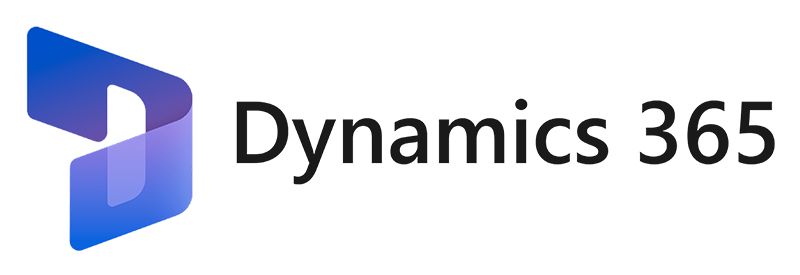AI-Driven B2B eCommerce Platform Built for Distributors and Manufacturers
Built to Simplify Complex B2B eCommerce
Distributors and manufacturers manage a world of moving parts. From handling complex pricing and customer-specific catalogs to managing bulk orders and ERP connections, traditional eCommerce platforms often fall short.
That’s why we built DCKAP Commerce, a B2B eCommerce for distributors and manufacturers. It brings together everything you need to run your B2B eCommerce efficiently.
DCKAP Commerce is AI-powered and ERP-integrated, designed to simplify the toughest parts of B2B eCommerce. Whether it’s automating pricing, syncing data across systems, managing multiple warehouses, or giving customers an easy self-service experience, everything just works seamlessly.
It’s not about adding more tools or complexity. It’s about simplifying what matters such as faster operations and a smoother buying journey for your customers.
With DCKAP Commerce, distributors can finally focus on growing their business instead of managing the chaos behind it.
Why B2B eCommerce Is Essential for Distributors Today?
Relying on emails, phone calls, and spreadsheets to take and manage orders can slow everything down and often leads to mistakes.
With a B2B eCommerce platform, distributors can:
- Give customers an easy self-service portal to place orders anytime.
- Automate pricing, inventory updates, and reorders to save time.
- Cut down on manual work and focus more on building customer relationships.
- Offer a faster, smoother, and more reliable buying experience.
For modern distributors and manufacturers, eCommerce isn’t just another sales channel anymore. It’s a key part of how businesses grow and stay competitive.

Why Distributors Choose DCKAP Commerce?
DCKAP Commerce is built for distributors and manufacturers from the ground up. It’s not an add-on or a customized B2C platform.
It understands how distributors actually work, managing customer-specific pricing, approval flows, contract-based discounts, and large-volume orders with ease.

1. Effortless ERP Connections
Connecting your eCommerce site to your ERP should be simple. With DCKAP Integrator, DCKAP Commerce syncs effortlessly with systems like Epicor Prophet 21, Acumatica, SAP, and more. Your pricing, inventory, and orders stay accurate in real time with no manual uploads or coding required.
2. Smarter with AI
Our AI tools help distributors work faster and more efficiently. They generate SEO-friendly product content, create high-quality images, and improve catalog search and organization.
This reduces manual work for your team while giving customers a smoother and smarter buying experience.
3. Quick to Launch, Easy to Customize
Launching your store doesn’t have to take months. With powerful B2B features already built in, your eCommerce store can be ready in just a few weeks. The platform is flexible, easy to design around your brand, and simple to maintain without needing deep technical skills.
4. Built to Grow with You
Whether you manage a few hundred SKUs or thousands, one warehouse or several locations, DCKAP Commerce scales as your business grows.
It supports multi-company and multi-location operations so you can expand without worrying about platform limitations.
5. More Than a Platform
DCKAP Commerce is not just another eCommerce solution. It is a complete digital foundation designed to make distribution simpler, faster, and more efficient. It empowers distributors to scale confidently and deliver exceptional online experiences for their customers.
Trusted by companies around the world







See what eCommerce built for distributors really looks like!
Key B2B Features Designed for Distributors
Contract Pricing
Different customers may receive different pricing based on contracts and various factors such as purchase volume, contract terms, or customer segment. Your platform should support custom pricing configurations, enabling you to set tiered pricing, volume discounts, or personalized pricing for specific accounts.
Bulk Ordering
B2B customers frequently place large orders, so your platform should simplify this process. Features like bulk order forms, quick order pads, and CSV file uploads for large orders can streamline purchasing, saving your customers time.
Sales Representatives
Seamlessly integrating sales representatives into your eCommerce platform enhances customer service and relationship management. This enables sales reps to provide personalized assistance with complex orders, offer tailored recommendations, and directly manage accounts within the platform.
Advanced Search and Navigation
- Faceted Search: Enhances product search with filters and facets, making it easier for users to find what they need.
- Catalog Management: Organizes products into catalogs designed for specific customers or customer groups.
Order Management
- Order Tracking: Provides real-time tracking of order status and shipment, ensuring customers are always informed about their purchases.
- Reorder Functionality: Streamlines repeat purchases with quick reorder features, saving time for customers.
Security and Compliance
- Data Security: Ensures the safety and integrity of sensitive business data through robust encryption, secure authentication mechanisms, and regular security audits.
- Regulatory Compliance: Ensures adherence to industry standards and regulations, safeguarding business operations and customer trust.
Account Management
- Multiple User Accounts: Allows businesses to create and manage multiple user profiles under a single business entity, enabling different roles and permissions to different team members. It facilitates collaborative work while maintaining security and privacy within the eCommerce platform.
- Approval Workflows: Establishes structured processes for order approvals, ensuring adherence to internal purchasing protocols and compliance standards. By automating approval procedures, it streamlines the purchasing workflow, reducing manual intervention and potential errors.
Quotes and Negotiations
- Quotes: Allow customers to request quotes for specific products or large orders. Implementing a streamlined quote request process, where customers can easily submit their requirements and receive prompt responses, which enhance the purchasing experience.
- Negotiations: Facilitate negotiation workflows within the platform. This includes tools for sales representatives to communicate with customers, adjust pricing, and finalize terms. Automated notifications and tracking ensure that both parties stay informed throughout the negotiation process.
Integration with ERP and CRM Systems
- ERP Integration: Seamlessly connects with Enterprise Resource Planning (ERP) systems for real-time data exchange on inventory, orders, and financials. Popular integrations like SAP, Oracle, Epicor Prophet 21 (P21), Microsoft Dynamics, and NetSuite should be considered.
- CRM Integration: Syncs with Customer Relationship Management (CRM) systems to provide detailed customer insights and enhance sales strategies.
Payment and Credit Management
- Quotes: Allow customers to request quotes for specific products or large orders. Implementing a streamlined quote request process, where customers can easily submit their requirements and receive prompt responses, which enhance the purchasing experience.
- Negotiations: Facilitate negotiation workflows within the platform. This includes tools for sales representatives to communicate with customers, adjust pricing, and finalize terms. Automated notifications and tracking ensure that both parties stay informed throughout the negotiation process.
Integrations












eCommerce, finally built for distributors
Built for Every Kind of Distributor
B2B eCommerce platforms serve a variety of use cases that cater to the unique needs of businesses engaging in transactions with other businesses. Here are some key use cases:
Janitorial Supplies
- Bulk ordering and tiered pricing
- Detailed product descriptions and usage instructions
- Inventory management and real-time stock updates
- Order tracking and automated reordering
- Integration with ERP and supply chain systems
Industrial Equipments
- Detailed product descriptions and specifications
- Bulk ordering and tiered pricing
- Integration with logistics and shipping providers
- Quote and proposal management
- Comprehensive reporting and analytics
Electrical Supplies
- Detailed product specifications and compatibility information
- Bulk ordering and custom pricing
- Real-time inventory management and live stock updates
- Order tracking and delivery scheduling
- Integration with ERP and logistics systems
Wholesale Distribution
- Bulk ordering capabilities
- Custom pricing for different customers
- Integration with ERP systems for inventory management
- Real-time inventory tracking
- Order history and reordering options
HVAC Supplies
- Detailed product specifications and compatibility.
- Bulk ordering and custom pricing.
- Service and maintenance scheduling integration.
- Seamless CRM and ERP integration.
- Real-time inventory management to prevent stockouts.
Medical and Pharmaceuticals
- Compliance with regulatory standards
- Secure transactions and data handling
- Detailed product information and documentation
- Custom pricing and bulk ordering
- Integration with inventory and ERP systems
TESTIMONIAL
Success Stories from Our Customers

Dale Marcus
We are very pleased to be using the DCKAP Commerce web platform. After exploring various options, such as Shopify and others, we determined that Commerce offered us the most compelling cost/benefit option. We previously used Magento and another web platform but DCKAP Commerce has best met our needs. As part of the transition to DCKAP Commerce, their team customized our unique operating parameters into their platform that allowed us to offer various custom pricing programs to distributors of our products. The follow-up support for our site has been excellent for various unforeseen issues that normally occur once going live.

Daniel Josephs
As distributors, efficiency and reliability are paramount, and this platform delivers on both fronts. Its seamless integration with our ERP systems streamlines our operations, while the intuitive user interface enhances the shopping experience for our customers. With DCKAP Commerce, we've experienced significant growth and increased customer satisfaction. It's a true game-changer for distributors in the eCommerce landscape.

Tom Ricketts
What I like best about DCKAP Commerce is its flexibility in customizing our eCommerce experience, user-friendly, highly scalable, and backed by a responsive support team that truly understands B2B needs. DCKAP Commerce is helping us solve the challenge of syncing real-time data between our eCommerce site and ERP system (Prophet 21). It eliminates manual processes, reduces errors in pricing and inventory, and significantly improves the customer experience with accurate, up-to-date information. As a result, we’ve increased efficiency, shortened order cycles, and boosted online sales.

Jenny Sagan
From a distributors' perspective working with DCKAP's new eCommerce platform has been refreshing. They have made it so user friendly and streamlined to use. You can easily see all of the areas that you need to navigate to. The ability to have customer-specific pricing options and tools has provided added value to our company. Updating information is a breeze, and also the visibility that you have with the new platform is fantastic. DCKAP's platform solutions have provided our company the ability to stand above our competition in the B2B market.
Frequently Asked Questions
Distributors should prioritize features like bulk ordering, custom pricing, real-time inventory sync, ERP integration, multi-warehouse support, and sales representative tools.
ERP integration ensures real-time data synchronization across inventory, orders, and financials, streamlining operations and reducing the risk of errors.
Features like bulk order forms, quick order pads, and CSV file uploads can streamline the ordering process, saving time for customers and improving order accuracy.
A user-friendly interface ensures ease of use for both administrators and customers, reducing the learning curve and improving overall user satisfaction.
Real-time inventory sync ensures accurate stock levels are displayed across all sales channels, preventing overselling and stockouts.
Distributors should compare total costs, including subscription fees, transaction fees, customization, and maintenance costs, to ensure the platform fits their budget.
